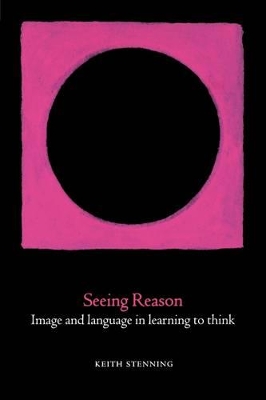Oxford Cognitive Science
1 total work
'A picture is worth a thousand words' Or is it? What difference does it make whether information is presented using illustrations or language?
'Seeing Reason' is an interdisciplinary study of a central topic in cognitive science: how does the mind respond to different kinds of representation of the same information, especially when learning, reasoning, and communicating. It uses philosophical, logical, linguistic, psychological, and educational methods to explore this topic, reporting theories, observations, and arguments developed during several years' research. Though the focus is on fundamental cognitive theories of human
capacities, the issues are closely related to intensely practical issues about the teaching and learning of reasoning and communication skills. Along the way it examines why the human mind has so evolved, the relationship between private language and public thought, and integrates cognitive and social
accounts of communication.
Written to be accessible to students and researchers within the fields of philosophy and psychology, this book shares new insights into how people process information, and how we use that information to reason, make decisions, and develop theories about the world in which we live.
'Seeing Reason' is an interdisciplinary study of a central topic in cognitive science: how does the mind respond to different kinds of representation of the same information, especially when learning, reasoning, and communicating. It uses philosophical, logical, linguistic, psychological, and educational methods to explore this topic, reporting theories, observations, and arguments developed during several years' research. Though the focus is on fundamental cognitive theories of human
capacities, the issues are closely related to intensely practical issues about the teaching and learning of reasoning and communication skills. Along the way it examines why the human mind has so evolved, the relationship between private language and public thought, and integrates cognitive and social
accounts of communication.
Written to be accessible to students and researchers within the fields of philosophy and psychology, this book shares new insights into how people process information, and how we use that information to reason, make decisions, and develop theories about the world in which we live.
